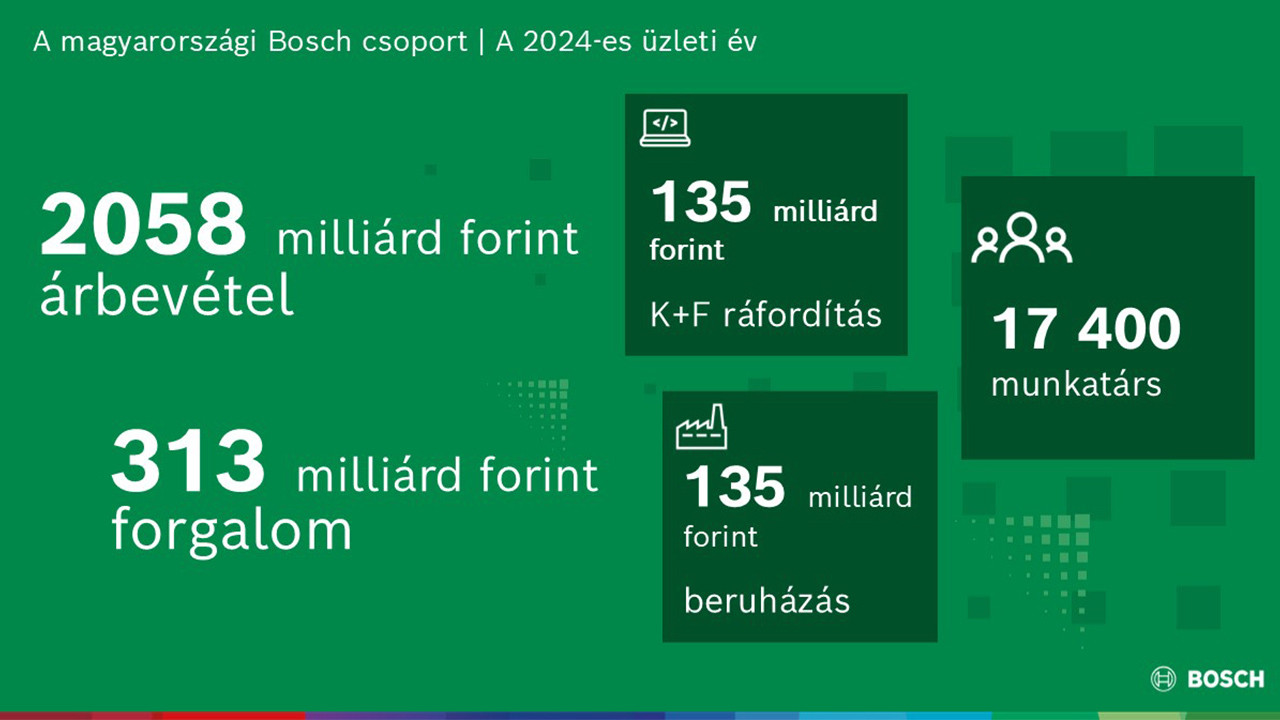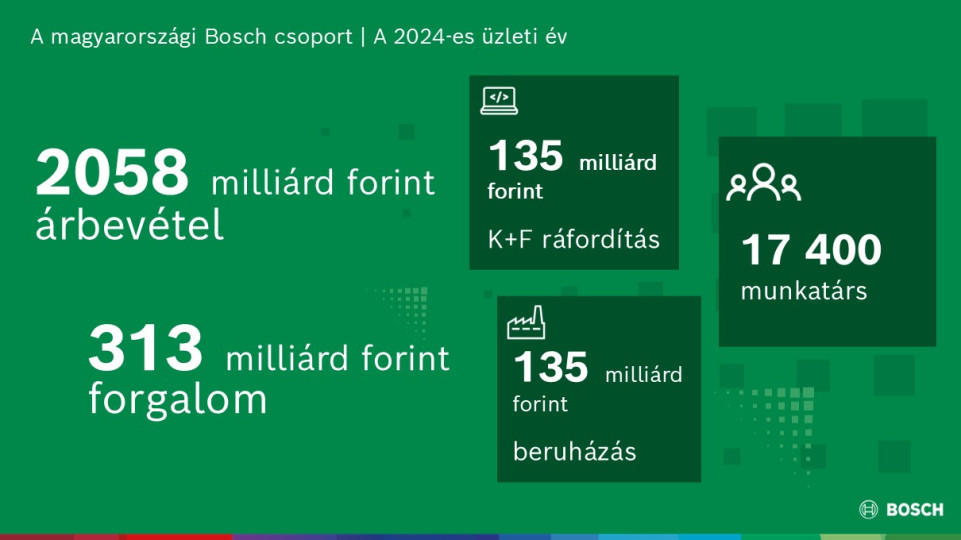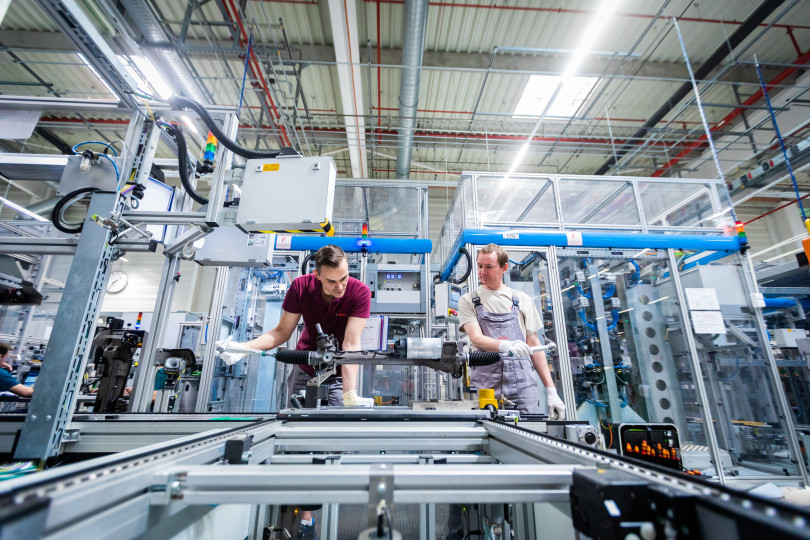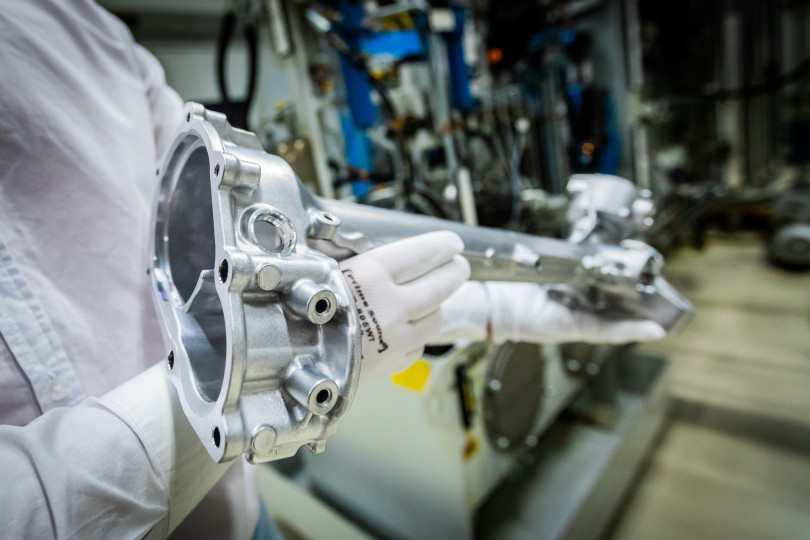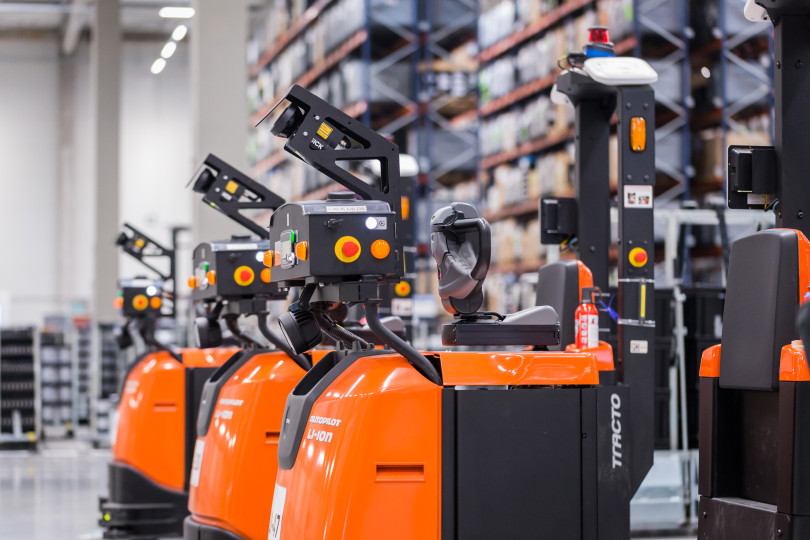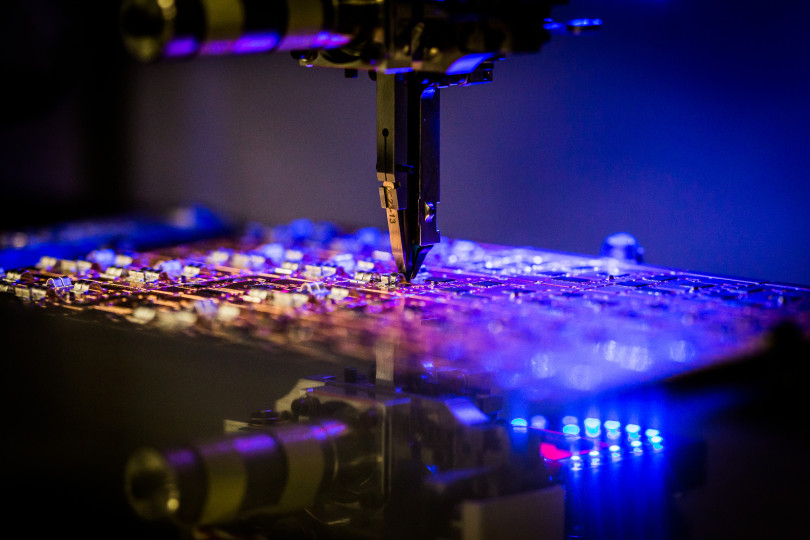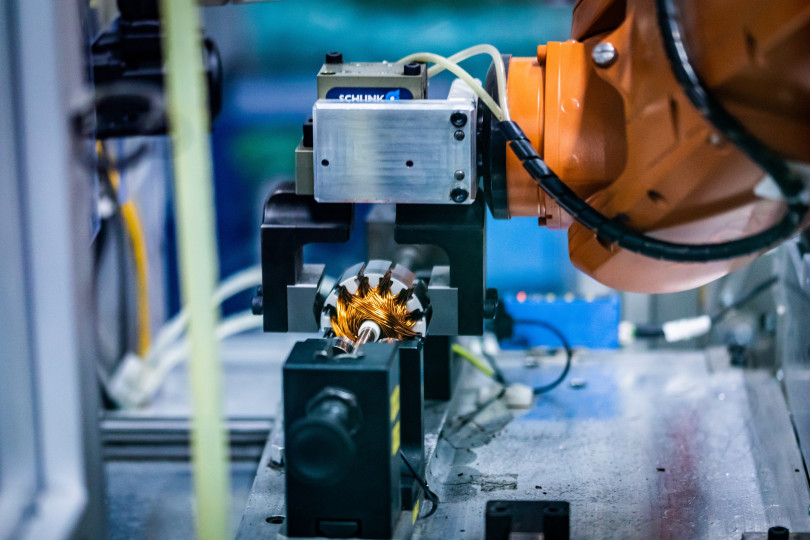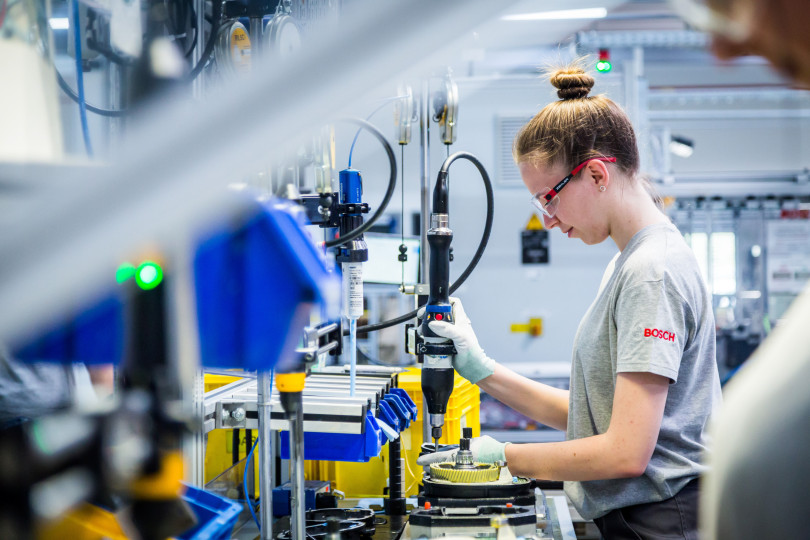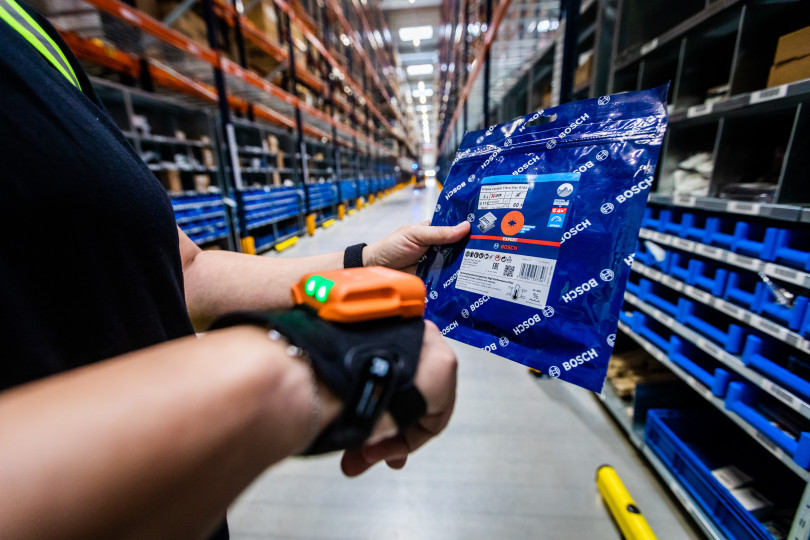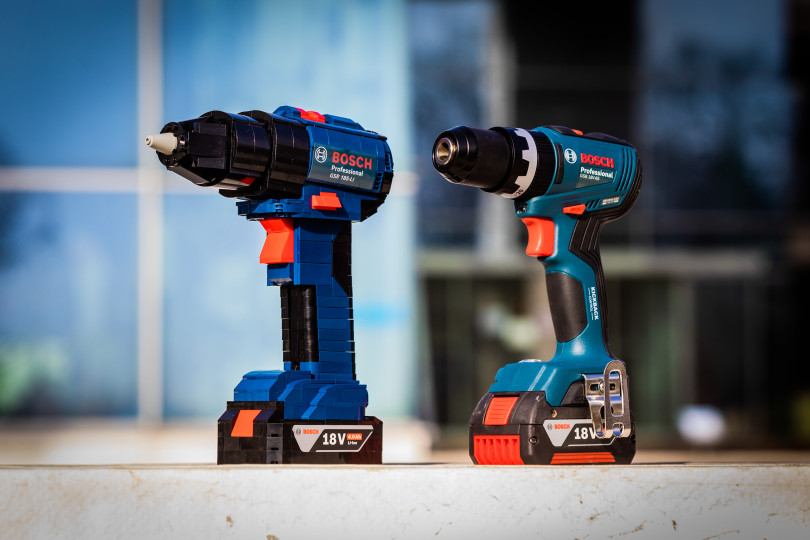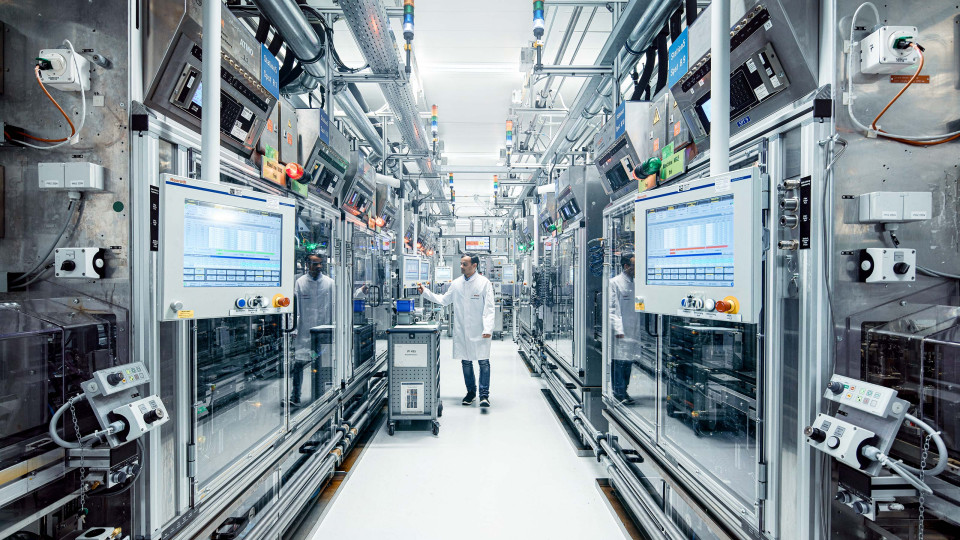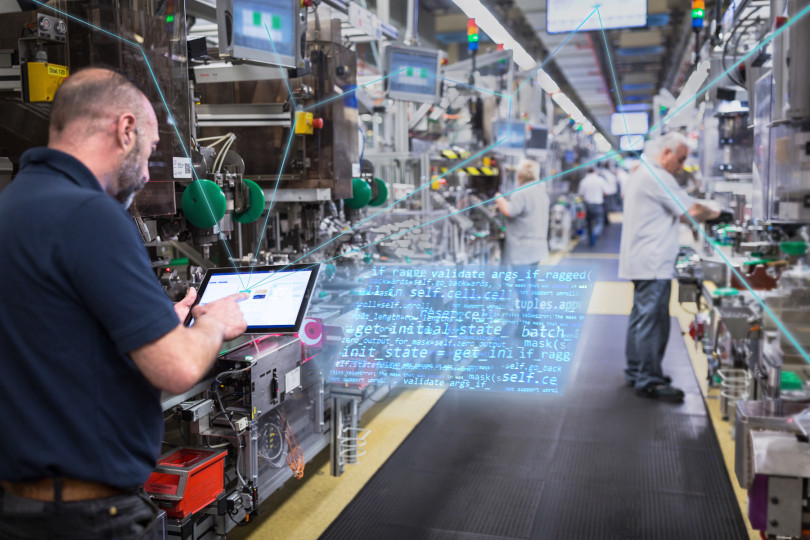Budapest – Bosch, the global supplier of technologies and services, achieved total net sales of 2,058 billion forints in Hungary in 2024, including sales of non-consolidated companies and internal deliveries to affiliated companies. The Bosch Group remains committed to future-oriented technologies, artificial intelligence, and sustainable solutions, even in a globally volatile economic environment. The challenges of 2024, such as rising energy and raw material prices, as well as the transformation of the automotive sector, have had a noticeable impact on the industry. Nevertheless, the Hungarian subsidiaries of Bosch continued to operate stably in 2024, thanks to strategic investments and the exemplary commitment of employees. The Bosch Group’s consolidated sales in the Hungarian market – sales revenue from sales to third parties – also reflected the environment of changing demand, decreased by 7 percent in local currency to 313 billion forints.
Bosch invested 135 billion forints in research and development in Hungary in 2024, maintaining its commitment to technological innovation. The investments also supported the introduction of state-of-the-art manufacturing solutions in the country. As of December 31, 2024, the Bosch Group employed more than 17,400 associates in Hungary, of which 3,800 associates in research and development.
“In 2024, we had to cope with an extremely complex economic environment, in which rising energy and material prices, the stagnation of the global automotive industry and the global economy all challenged the Bosch Group. Despite increasing trade restrictions and uncertainties, Bosch in Hungary has maintained stable operations thanks to the outstanding performance of our associates. I would like to thank our colleagues for their dedication and flexibility, because even in the age of automation, human know-how, creativity and teamwork are the main drivers of our development,” said István Szászi, representative of the Bosch Group in Hungary and in the Adriatic region. Artificial intelligence, AI-based technologies and digitalization are putting tasks that require creative, strategic thinking even more at the forefront. The training and professional development of Bosch associates remains of strategic importance. It is no coincidence that the Bosch Group was chosen as one of the most attractive employers in Hungary – being the 1st choice in “Manufacturing” category of PwC’s Most Attractive Employer 2024 Award.
Artificial intelligence: the key to the future
Seizing the opportunities offered by artificial intelligence was one of the focus topics of Bosch’s strategy in 2024. According to the results of the global Bosch Tech Compass survey, technological development and the application of AI not only increase the efficiency of production processes but are also key to overcoming social and economic challenges. In 2024, Bosch and Richter Gedeon Nyrt. established the Industrial Innovation Award, which encourages higher education students to develop AI-based solutions in the fields of healthcare and mobility. AI is also becoming increasingly prominent at the Hungarian sites of Bosch: applications ranging from optimizing production processes to achieving sustainability targets demonstrate the versatility of the technology.
Stability and progress in 2024
The Bosch Budapest Innovation Campus continues to be the base for research and development and administrative functions. In line with automotive trends, innovation and education were the main directions in 2024, where focus is still on AI-based developments and future-oriented technologies. In addition to the above, the Bosch Group in Hungary is preparing for the challenges of the future by focusing on sustainability and green technologies. Bosch uses entirely green energy at all its sites in Hungary, in line with the company's sustainability strategy.
Robert Bosch Elektronika Kft. at the Bosch plant in Hatvan could expand the production of inverters, power modules and charging converters for electric drive technology applications in 2024, which are key in the market for plug-in hybrid and pure electric vehicles. A digital solution has been developed at the Hatvan plant, which enables real-time, automated tracking of production processes, downtime, cycle times, and inventories. This application will also be used in other factories of the Bosch Group, creating further optimization opportunities. In the spirit of sustainability, a solar park establishment has also been started, which supplies the plant with green electricity, thereby reducing dependence on grid energy.
The multifunctional hall of Robert Bosch Automotive Steering Kft. in Maklár was opened in December 2024. The new hall houses the logistics processes of steering systems intended for passenger cars and commercial vehicles, the warehousing and unpacking of components, the storage and washing of packaging materials, as well as other activities supporting logistics and quality assurance activities. Digital layout and material flow simulation technology optimizes the entire warehousing process. In the spirit of sustainability, the Maklár plant organized numerous programs, and they managed to save 963 MWh of energy, 265 m³ of water, and 197 tons of waste in 2024.
Robert Bosch Energy and Body Systems Ltd. in Miskolc has seen great demand for the new generation of engine cooling fan motors, and the company has also acquired the series production of solenoid valves, which play an important role in the thermal management systems of vehicles. AI-based manufacturing solutions, such as failure analysis on eBike drive production lines, have brought significant progress. The site has also been active in education: it launched training on the everyday use of generative AI. Together with Robert Bosch Power Tool Kft. that manufactures power tools in Miskolc, and Bosch Rexroth Kft. in Budapest, which specializes in the automation of industrial and mobile applications, it renovated the Bosch Department at the University of Miskolc. The department's rooms and environment were refurbished, the equipment was modernized, and the curriculum of the department, which celebrates its 20th anniversary this year, was adapted to current industrial expectations.
A highlight of the year was the handover of the highly digitalized logistics and distribution center of Robert Bosch Power Tool Kft. A state-of-the-art warehouse structure was created to serve the growing warehousing and distribution needs worldwide, featuring numerous digital solutions. Moreover, in line with Bosch's broader sustainability goals, energy efficiency, waste management and green logistics have also been prioritized. In terms of the company's business activities, last year, after the intensive growth of the previous years, the focus was on maintaining stability, improving competitiveness, as well as increasing efficiency and productivity.
Bosch expands its presence in Hungary
Elpro Systems Kft., headquartered in Switzerland, is the ninth company to join the Bosch Group in Hungary. ELPRO is a global solution provider in the field of innovative environmental monitoring in the pharmaceutical, life sciences, biotechnology and healthcare industries. The company's Hungarian office focuses on software development and contributes to the continuous development of monitoring technologies with 16 employees.
Bosch Group: outlook for 2025 and strategic course
The Bosch Group is continuing with its ambitious Strategy 2030 to strengthen its competitive position, even though the market environment was a significant brake on growth last year: at 90.3 billion euros, the supplier of technology and services generated 1.4 percent less sales revenue in 2024 than in the previous year, or 0.5 percent less after adjusting for exchange-rate effects. The EBIT margin from operations was 3.5 percent. “In the 2024 fiscal year, we achieved important improvements in terms of costs, structures, and portfolio,” said Stefan Hartung, chairman of the board of management of Robert Bosch GmbH. With a normal inflation rate of between 2 and 3 percent, Bosch aims to achieve annual growth of between 6 and 8 percent on average until 2030. In the first quarter of the year, Bosch increased its sales revenue by 4 percent compared to the previous year. The Bosch Group is still aiming for a target margin of 7 percent in 2026, viewing this as an extremely challenging task given current challenges. To remain successful amid changing markets and technologies, Bosch will continue to work intensively on costs and structures and focus on profitable business areas. “As a global technology leader, we are fully committed to boldly playing to our strengths, such as our high level of innovativeness,” Hartung said.
The company also sees its collaboration with startups as a major stimulus for growth. As one of Europe’s biggest corporate venture-capital investors, the Bosch Group announced a new fund for venture capital: the subsidiary Bosch Ventures is providing around 250 million euros. Bosch expects developments in its core Mobility business sector, particularly in electromobility, hydrogen, and software-defined vehicles, to be a major stimulus for growth. In the Consumer Goods sector, Bosch sees significant growth opportunities arising from new customer requirements. The focus for power tools is on expanding the range of cordless devices, and BSH Hausgeräte is launching a fridge-freezer this year that is the first Matter-capable home appliance on the market. In its Industrial Technology business, Bosch expects order intake to stabilize and is still pursuing the goal of achieving sales revenue of around 1 billion euros by the beginning of the next decade with software and digital services such as the Hydraulic Hub. Additionally, factory automation is set to focus on growth areas such as battery, semiconductor, and consumer goods production. In the Energy and Building Technology sector, Bosch expects the planned acquisition of the heating, ventilation, and air-conditioning (HVAC) business of Johnson Controls and Hitachi to deliver significant growth. Despite all the global turbulence, climate action remains a core concern for Bosch. The company is underlining this with new scope 3 targets, which aim to bring down carbon emissions outside Bosch’s direct sphere of influence, such as those from product use, even further by 2030. Irrespective of its growth targets, Bosch wants to double its corresponding CO2 reduction target by then from 15 to 30 percent compared to 2018. “Climate change won’t disappear just because the global economy currently has other challenges to deal with,” Hartung cautions. “Sustainability remains a priority for Bosch.”
Mónika Hack
+36 70 510 5516
Bosch has been present in Hungary since 1898 with its products. After its re-establishment as a regional trading company in 1991, Bosch has grown into one of Hungary’s largest foreign industrial employers with currently nine subsidiaries. In fiscal 2024 it had total net sales of 2,058 billion forints and consolidated sales to third parties on the Hungarian market of 313 billion forints. The Bosch Group in Hungary employs more than 17,400 associates (as of December 31, 2024). In addition to its manufacturing, commercial and development business, Bosch has a network of sales and service operations that covers the entire country.
The Bosch Group is a leading global supplier of technology and services. It employs roughly 418,000 associates worldwide (as of December 31, 2024). The company generated sales of 90.3 billion euros in 2024. Its operations are divided into four business sectors: Mobility, Industrial Technology, Consumer Goods, and Energy and Building Technology. With its business activities, the company aims to use technology to help shape universal trends such as automation, electrification, digitalization, connectivity, and an orientation to sustainability. In this context, Bosch’s broad diversification across regions and industries strengthens its innovativeness and robustness. Bosch uses its proven expertise in sensor technology, software, and services to offer customers cross-domain solutions from a single source. It also applies its expertise in connectivity and artificial intelligence in order to develop and manufacture user-friendly, sustainable products. With technology that is “Invented for life,” Bosch wants to help improve quality of life and conserve natural resources. The Bosch Group comprises Robert Bosch GmbH and its roughly 490 subsidiary and regional companies in over 60 countries. Including sales and service partners, Bosch’s global manufacturing, engineering, and sales network covers nearly every country in the world. Bosch’s innovative strength is key to the company’s further development. At 136 locations across the globe, Bosch employs some 87,000 associates in research and development.
Additional information is available online at www.bosch.hu, iot.boschblog.hu, www.bosch.com, www.iot.bosch.com, www.bosch-press.com, www.twitter.com/BoschPresse

